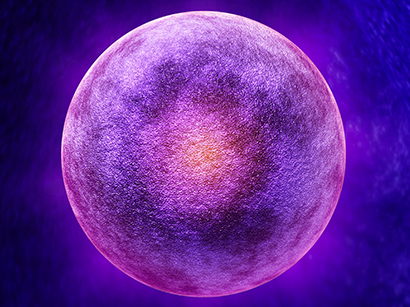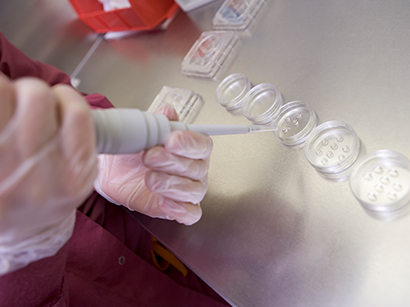Find information on diseases & conditions, and treatment & procedures
Reproductive Medicine
Infertility
Overview
Infertility is generally defined as incapability of being pregnant despite
consistent trials of unprotected sexual intercourse over a year. Many
couples from worldwide visit Korea for Assisted Reproductive Technology (ART)
such as Artificial Insemination (AI) and In Vitro Fertilization (IVF). Cause of infertility
can be on the female (dysfunction in ovary, obstruction of fallopian tube, dysfunction
in uterus) or male (problems with hormones, prostate, etc) or both of them.
Once its cause is diagnosed via pr?cised tests, appropriate treatment can be delivered.


Symptoms
- In many cases, there may not be any existing symptoms.
- Irregular or periodically absent menstruation in female
- Hormonal alterations may cause change in sexual function or hair growth.
Treatments
1. Artificial Insemination (AI)
AI is an insertion of pre-collected sperms from male into female’s uterus to facilitate
natural pregnancy. The insertion is done when female’s ovulation is about to begin.
If there are not enough available sperms, donated sperms could be used on patient’s wish.


1) Process of procedure
- Take medication that helps ovaries ovulate more eggs prior to AI
- Healthy pre-collected sperms (concentrated) are inserted into the uterus usually
the day after ovulation.
- Confirm the placement of sperms in right position and remove the catheter.
2) Expected duration of hospital stay
- Generally the procedure itself takes only few minutes.
- Hospitalization is not required.
3) Post-operative care
- Small amount of bleeding may occur due to insertion of catheter.
4) Ideal outcomes
- Get a positive result on pregnancy test in two weeks of AI
5) Risks
- Low possibility of infection risk
- A small amount of bleeding
- Multiple pregnancies
6) Treatment cost
- The cost can vary by hospitals
- Expected cost ranges from to.
2. In Vitro Fertilization (IVF)
IVF is the most commonly provided medical service in infertility clinic. As IVF is an invasive
procedure, it is usually recommended to patients with certain conditions such as fallopian
tube damage, ovarian problems, endometriosis and that the patients already tried AI for
longer than six months. It is basically a procedure transplanting embryo fertilized outside
the body into female’s uterus for pregnancy purpose.
- Extra embryos can be preserved for the next course of IVF


1) Process of procedure
- Take medication that helps ovaries ovulate more eggs prior to AI
- Collect eggs (patient gets sedated during the procedure) and sperms
- Artificially fertilize embryo in the laboratory
- Transplant the embryo(s) into uterus
2) Expected duration of hospital stay
- Generally the process stimulating ovary’s over ovulation takes one week to two weeks.
- Egg retrieval takes 10-20 minutes
- Artificial fertilization and hatching embryo takes 3~6 days
- Hospitalization is not required.
3) Post-operative care
- Small amount of blood like fluid from vagina can be found
- IVF does not require specific care, but better avoid thoroughly alive activities
4) Ideal outcomes
- Get a positive result on pregnancy test in two weeks of IVF
5) Risks
- Bloating, cramping can occur after egg retrieval
- A small amount of bleeding
- Oppressive pain in the breast
- Multiple pregnancies
6) Treatment cost
- The cost can vary by hospitals
- Expected cost ranges from to.








 Inquiry
Inquiry Find Doctor
Find Doctor
